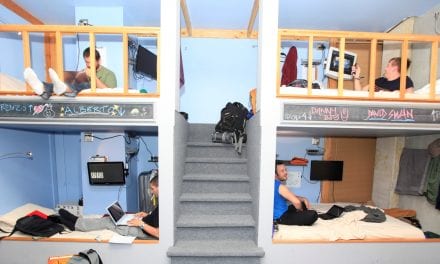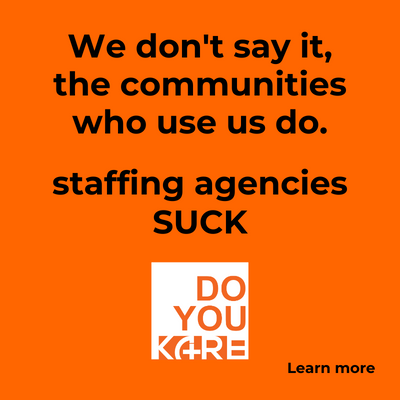Recently I was in Victoria, BC for meetings at Vigil Health Solutions and we got to telling real life stories about how our dementia care system makes a difference in the lives of residents, communities and staff. Troy Griffiths, the CEO of Vigil told a great story.
Setting the Stage
In the last month I published an article that discussed how harmful hospitalization of residents is. There were a number of readers who shared their own real life stories that confirmed this premise. The absolute reality is that dementia residents have much a much higher quality of life when there is as little disruption to their lives as possible. Given all we know about dementia residents, the ongoing challenge is how to keep residents healthy, happy and safe without being disruptive or intrusive. With the general senior population the problem is relatively easy. They can pretty effectively communicate their desires, wants and needs. An important part of that process is an emergency call system that includes bathroom pull cords, call buttons in their rooms and wireless ![]() pendants that residents can wear or carry. Dementia residents, however, are generally not able to effectively communicate their desires, wants and needs. Something that substantially affects life safety is that they are not able to use a traditional emergency call system. This is a risk that is particularly high at night. The typical solution is to have caregivers do frequent room checks.
pendants that residents can wear or carry. Dementia residents, however, are generally not able to effectively communicate their desires, wants and needs. Something that substantially affects life safety is that they are not able to use a traditional emergency call system. This is a risk that is particularly high at night. The typical solution is to have caregivers do frequent room checks.
The problem is that these checks are disruptive to the residents and, if the caregiver becomes distracted, they sometimes just don’t happen as frequently as is ideal. Vigil has solved the problem with a dementia specific call system that uses an integrated system of motion detectors placed in strategic locations in each resident room that accurately notifies caregivers that a resident needs assistance. What makes the system particularly effective is that each room can be individually configured to match the specific behaviors of the resident or residents in that room. This means that when calls are initiated they are more likely to represent real needs. In addition there is active monitoring even when no caregiver is present.
The Story
A nurse was passing meds one evening and there was a minor incident that pulled her away from her med cart. Because the incident was urgent she left her med cart sitting in the corridor and accessible to residents. While the medications were locked away, the items that goes with passing meds, water, juice, applesauce and pudding remained on top of the cart. A resident who was not supposed to have any oral foods or liquids (NPO) was in his room within eyesight of the cart. Murphy’s Law being in full effect, he spotted the cart with edibles on top and went for it. The Vigil Dementia system immediately triggered an alert and caregivers were able to get to him before he got to the cart. It avoided a real potential medical problem and reportable event. Staff working with dementia residents could use eyes in the back of their heads. Solid technology is the next best thing.
You can check out the Vigil system at vigil.com Steve Moran
Don’t miss a single issue of Senior Housing Forum, subscribe today. It is free! We do not sell or share your contact information. The posts are practical and never too long. Go to the main page of Senior Housing Forum and on the top you will see a place to enter your email to subscribe. You will receive notification when a new article is posted. You can unsubscribe at any time.
Finally: If you know anyone who is looking at emergency call systems I would appreciate the opportunity to talk with them about Vigil Health Solutions.








From LinkedIn Groups
Group: Boomers: Aging Beats The Alternative
Discussion: Dementia Care Givers need eyes in the back of their heads. Good technology is a close second.
Hi Steve,
Good use of technology. I tweeted it.
Posted by Lorie Eber
From LinkedIn Groups
Group: Case Mix Reimbursement for SNF’s
Discussion: Dementia Care Givers need eyes in the back of their heads. Good technology is a close second.
Very innovated device. I have used motion sensor alarms on residents as a restoative nurse, I found that they had a significant delay to them which made them unusable for most residents. How does the device work and is it connected to a nurse call system to decrease the amount of noise on the unit?
Posted by Jennifer McGranahan
From LinkedIn Groups
Group: Boomers: Aging Beats The Alternative
Discussion: Dementia Care Givers need eyes in the back of their heads. Good technology is a close second.
This is a great technology to use with dementia care patients. I like the idea of being able to configure the device specifically to separate rooms.
Posted by Katy Krul
Wow, that was a close one. Your situation could’ve easily turned out much worse. I agree with what you have concluded, it really does seem like the best option. Especially for dementia patients. I actually work with senior citizens every day, helping them cover the out of pocket gaps brought on by government Medicare. It is an extremely rewarding position.
Medigap policies offer coverage, at varying levels, for the significant out-of-pocket costs that are not covered by Medicare, such as deductibles, coinsurance, and copayments. This important coverage option allows seniors and younger Medicare enrollees with disabilities – many of whom are on fixed incomes – to budget for medical costs and avoid the confusion and inconvenience of handling complex medical bills.
If you ever get the opportunity, feel free to check out our brand new website. We’d really appreciate any type of feedback that you may have. Thanks again for sharing!